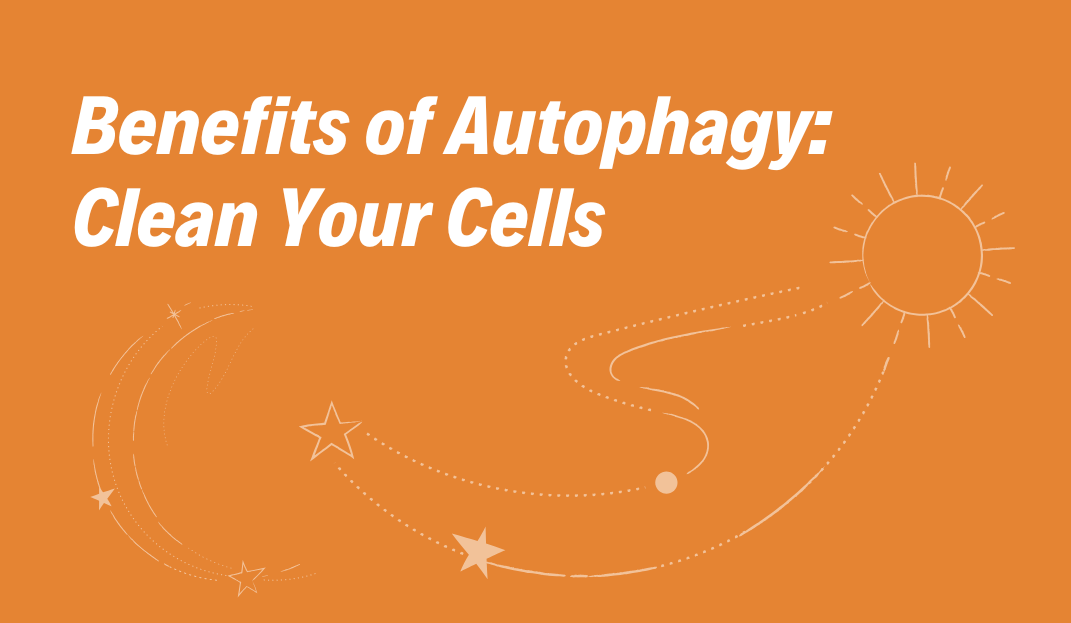Cleaning Your Cells

Autophagy, derived from the Greek words “auto” (self) and “phagy” (eating), refers to the body’s natural process of cleaning out damaged cells, regenerating newer, healthier cells, and recycling cellular components. This cellular “house cleaning” mechanism occurs in all of our cells and is essential for maintaining cellular homeostasis and overall health. When functioning optimally, autophagy can help protect against disease, bacteria, viruses and infections, and can enhance longevity, and improve metabolic health.
Benefits of Autophagy
Promotes Longevity
 By cleaning out the debris in cells, autophagy can prevent the build-up of toxic proteins and damaged organelles. This helps maintain cellular health and can slow the aging process.
By cleaning out the debris in cells, autophagy can prevent the build-up of toxic proteins and damaged organelles. This helps maintain cellular health and can slow the aging process.
Boosts Metabolic Health
Autophagy supports insulin sensitivity and balances blood sugar levels, reducing the risk of type 2 diabetes. It also improves fat metabolism, aiding in weight management and fat loss.
Supports Brain Health
The brain is highly sensitive to protein accumulation, which can lead to neurodegenerative diseases like Alzheimer’s and Parkinson’s. Autophagy clears away these toxic proteins, helping preserve cognitive function and protect against neurodegeneration.
Enhances Immune Function
Autophagy assists in removing invading pathogens and boosts the immune system’s ability to fight infections. By doing so, it helps reduce inflammation and enhances the body’s ability to defend itself.
How to Maximize Autophagy
Fasting
Intermittent fasting is one of the most effective ways to trigger autophagy. At the very least, allow 13 hours per day during which you do not eat or drink any calories. For example, if your last caloric intake is at 7pm, you won’t eat or drink any additional calories until 8am the next morning. This will allow your body to focus on rest, recovery and autophagy during those 13 hours. Studies show that fasting for longer periods of time such as the popular 16:8 restricted eating period that allows for 8 hours for an eating window and 16 hours for fasting, prompts the body to initiate extensive cellular cleanup.
Exercise
Physical activity induces autophagy, especially endurance exercise like running, cycling, hiking, or swimming. Even moderate exercise can stimulate this process in muscle tissues and the liver.
Sleep
Quality sleep allows for efficient and effective autophagy.
Stress Management
Reducing stress can help optimize hormonal balance which plays a key role in autophagy regulation.
Allowing your body to “clean” itself from the inside out is one of the most important things you can do to maximize overall health and longevity.
Yours in health & fitness,
Sherri McMillan
